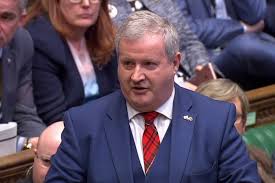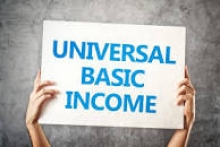Work TV
Watch our TV Channel dedicated to the ‘World of Work’. Explore our video library for informative videos featuring career opportunities at leading companies, franchising opportunities, further education and recruitment professions and their services.
Simon Collyer
Rip-off Retailer BrightHouse Has Collapsed
GOOD RIDDANCE - BrightHouse - the biggest rent-to-own operator in the UK - has collapsed, with administrators now attempting to salvage parts of the business. The weekly payment store sells household products to people in financial hardship who are often turned away from traditional lenders.
Customers should continue to make the monthly payments required to keep their household goods, with administrators now acting as the collecting agent.
The company had been struggling after an influx of compensation claims for selling to people who could not repay.
From the Sun website. Here's how to make a claim according to money blogger DebtCamel:
You'll need to prove that you couldn't afford to take out the loan policy, for example that you couldn't pay your bills or other debts as a result of the agreement.
Look back through your emails, bank statements and credit report for evidence.
You'll need to write a formal complaint letter to the firm explaining how you were irresponsibly lent to and include the evidence.
You'll need to say that it was or is "unaffordable" and ask for a refund of the interest and charges you paid.
Make copies of all of the evidence before sending in case anything happens to them.
Also ask for the policy to be removed from your credit record.
Wait up to eight weeks to hear back from them. If you're not happy with the answer, or they don't get back to you, contact the Financial Ombudsman.

ABC Comment, have your say below.

UK GOV Must Introduce Emergency Universal Basic Income Say SNP
UNIVERSAL BASIC INCOME - Calls have been growing for the government to introduce a Universal Basic Income.
Ian Blackford has criticised the Chancellor’s plans for self-employed people across the UK – warning that the delayed measures simply do not go far enough for millions in urgent need of support.
Blackford added that the proposals outlined by Rishi Sunak today fail to match the Prime Minister’s pledge at PMQs to deliver parity with the support announced earlier for employees - with the new income support scheme scheduled to be up and running by June.
The Resolution Foundation estimates that one in three people in self-employment, a total of 1.7 million, are at risk of losing their income - including around 330,000 in Scotland.
The SNP Westminster leader has renewed his calls on the UK government to introduce an emergency Universal Basic Income to protect people's incomes in the face of the pandemic, and to prevent people from being pushed into debt and hardship.

Image: SNP's Ian Blackford MP.
Responding to the Chancellor’s statement, Ian Blackford said:
“It is disappointing that it has taken this long for the UK government to announce measures for millions of self-employed people across the UK, and it is extremely concerning that the people with bills to pay and families to feed will have to wait until June for the support they need now.
“Many self-employed people rely on a regular flow of income, including thousands from low-income households and key workers, and they need support now. However, the Chancellor’s delayed plans fail to deliver for many households already in difficulty.
"While they are being forced to wait for months, they are also being asked to apply to a Universal Credit regime which continues to have a five week wait. This is unacceptable and people will struggle to make ends meet.
“I have repeatedly pressed the UK government to bring forward a package of support that delivers fairness and financial safety. The Prime Minister pledged parity - that rhetoric has failed to have been matched by the UK government’s measures.
“The UK government must use the tax and welfare system to provide a guaranteed income for everyone, and bring forward emergency Universal Basic Income - including increasing UK Statutory Sick Pay to the EU national average, including self-employed people in the Coronavirus Job Retention Scheme, and strengthening welfare protections by increasing Child Benefit and making Universal Credit more flexible.”
ABC Comment, have your say below:

Northern Ireland Ministers Take Action in Relation to Free School Meals Payment
FREE SCHOOL MEALS - Communities Minister Deirdre Hargey and have announced plans to make sure families do not experience hardship as a result of schools closing.
Communities Minister, Deirdre Hargey said: “We have taken action so that almost 97,000 children who are entitled to free school meals will benefit. I am very pleased to announce that we will introduce direct payments to families whose children would usually benefit from a school meal.
“My Department is leading on plans to ensure that low income families and vulnerable people get the vital support they need in response to the Coronavirus outbreak. We have been working closely with the Department of Education and the Education Authority to ensure children who would have access to free school meals every day continue to get support.
“Families will receive £2.70 per child per day for each day of term the schools are closed. This money will be paid to families on a fortnightly basis.”
The direct payments scheme will ensure families eligible for free school meals will receive direct payments into bank accounts during the period of term time school closures.

Image: Northern Ireland Education Minister Peter Weir.
Education Minister, Peter Weir said: “This is very welcome news to those families who are struggling financially. My Department has been working with the Education Authority to resolve this issue as quickly as possible.
“Starting next week, the Education Authority will process payments for some 97,000 children in the same way they do for uniform grants. The Education Authority already has the bank details for the vast majority of those in receipt of free school meals so there is no need for anyone to apply.
“There are however a number of families for whom bank details are not held.
“These families will be contacted via a text message early next week and advised to complete an online form which will then be available on the Education Authority website. It is vital that people respond to any request from the Education Authority, to avoid delay in payment.
“This is a major undertaking, involving thousands of payments in a completely new package of support and the Education Authority will make every effort to get these payments out to families next week. We would ask everyone to bear with us as not all families may get the funding at the same time. I want to assure them that they will receive payments which will be backdated."
Concluding Deirdre Hargey said: “Easter is fast approaching, therefore we have ensured that assistance will be provided over the Easter holiday period as well.
“This has been an exercise in a number of government departments and agencies working collaboratively to deliver real help to those that need it. I recognise that this action alone will not be enough to stop some vulnerable children and families facing hardship. My Department is committed to providing a safety net for all those vulnerable and low-income families.
ABC Comment, have your say below:

The Department of Work and Pensions Has Announced Easter Social Security Payment Dates
BENEFITS - Payment dates for Easter are as follows:
The Department of Work and Pensions (DWP) has announced the changes to payment dates for the bank holiday weekend.
Easter Sunday will take place on April 12 this year – so Good Friday will be April 10 and Easter Monday is April 13.
Universal credit
- If you are due to receive your payment on April 10 you will get it on April 9 instead
- If you are due to receive your payment on April 13 you will get it on April 9 instead
Tax credits
- If you are due to receive your payment on April 10 you will get it on April 9 instead
- If you are due to receive your payment on April 13 you will get it on April 9 instead
Child benefits
- If you are due to receive your payment on April 13 you will get it on April 9 instead

Will you be affected by the payment date changes?
ABC Comment, have your say below:

Jobcentre Plus - No Attendance Requirement for Three Months
CLAIMANT INFORMATION - Just to be clear.
Claimants are asked to apply online as jobcentres limit access.
Information for claimants
What this means for you:
- there will be no new reviews or reassessments across all benefits for three months – this includes Universal Credit (UC), Employment and Support Allowance (ESA), Personal Independence Payment (PIP), Disability Living Allowance, Attendance Allowance and the Industrial Injuries Disablement Benefit.
- face-to-face assessments for all sickness and disability benefits have been suspended for the next 3 months including for any new claims.
- PIP claimants, if an assessment has already taken place this will continue to be processed. If an assessment has been scheduled, claimants will be contacted by the assessment provider to discuss how this will be taken forward.
- ESA and UC claimants whose cases have been referred to the provider will be contacted to take this forward.
Additional information
About the suspension of reviews and assessments:
- the suspension will be kept under regular review and extended if necessary.
- if people experience a change in their needs they are still encouraged to contact the Department to ensure they are receiving the correct level of support.
- where awards are due to expire, we will be extending end-dates so that claimants continue to receive financial support at their current rate during this period.
On Thursday (19 March) it was also announced people receiving benefits do not have to attend jobcentre appointments for at least 3 months. People will continue to receive their benefits as normal, but all requirements to attend the jobcentre appointments in person are suspended.
People are being urged to use online services before turning to the telephone for help with their benefit claim, with access to jobcentres limited for the most vulnerable.
ABC Comment, have your say below:

Essex Coronavirus Action Task Force Being Put Together
VOLUNTEERING - Essex County Council - https://essexwelfareservice.org are putting together a tak force to assist people during the coronavirus crisis. You can join up by visiting this website.
ABC Comment, have your say below:

Northern Ireland Housing Support Kicks In
HOUSING SUPPORT NORTHERN IRELAND - Communities Minister Deirdre Hargey MLA has outlined measures she is putting in place to ensure people continue to have secure accommodation in the midst of the Covid-19 pandemic.
Steps include support and assurance for social and private renters as well as crucial support to those experiencing homelessness.
Minister Deirdre Hargey MLA said: “This is a worrying time for everyone and I am very aware that there is an increased level of anxiety in our community. The last thing anyone needs right now is to add the security of their home to those worries.
“Today I want to assure renters, homeowners and those in a homeless situation, that I am putting measures in place to provide crucial support."
In relation to social housing tenants, Minister Hargey said: “I can announce that my Department has an agreement in place with all social housing landlords (Housing Executive and Housing Associations) that any social housing tenant facing difficulties paying rent during Covid-19 will not be evicted. My Department will work with Housing Associations and the Housing Executive to help them keep tenants in their homes and to ensure that the welfare system can provide help to their tenants as quickly as possible. You can be assured your home is secure.
“I have also been assured by Co-ownership for those facing difficulties keeping up with their payments, that their customers’ homes are secure and that both Co-ownership and mortgage lenders will treat these issues with sensitivity and support their customers during a difficult period.”
Anyone experiencing difficulties paying their rent through loss of employment for example can get help with their housing costs by applying for Universal Credit online. Help with housing costs in Universal Credit is paid directly to landlords. For social tenants this, along with mitigations for social sector size criteria will cover their rent.
For private renters, the level of rent due to landlords may be more than the housing cost element of Universal Credit.
Minister Hargey has moved to address this situation to ensure security of tenure for those in the private rented sector.
Minister Hargey said: “My Department is making changes to help households that have lost income to pay their rent. An increase in Local Housing Allowance rates from 1 April will provide additional financial support for private tenants in receipt of Housing Benefit or the housing costs element of Universal Credit.
“In addition, anyone who has lost their job and who signs on to Universal Credit can apply for a Discretionary Housing Payment to have their full rent paid for 13 weeks.”
With this support, evictions should be avoided as rent payments will continue to be made.
The Minister also highlighted the recent announcement by the Lord Chief Justice's Office that courts will only be listing urgent matters. A landlord cannot legally seek possession of a tenant’s house without a court order. Once a landlord has served a notice to quit on a tenant, they can then only get possession of the property through an application to the court.
For homeowners, the Chancellor has also announced that mortgage lenders will offer at least a three month mortgage holiday for homeowners. This has been extended to cover ‘Buy to Let’ mortgages, to help landlords cope with lost income.
Minister Hargey continued: “Covid-19 presents a challenge for us all but it brings very particular challenges to those are homeless and those who support them in shelters, hostels and emergency accommodation. These are amongst the most vulnerable in society and need our support and compassion.
“The Housing Executive, which leads on the response to homelessness, has a central Covid-19 team in place and will continue to fulfil its statutory homeless obligations during this period. The Housing Executive has sourced additional accommodation and is working with my Department, the Public Health Agency and Trusts (which have set up a nurse lead team) and the Department of Health to implement its surge plan, ensure the safety of those in homeless accommodation settings and to respond to staffing and capacity pressures presented by Covid-19.
"I am working with the Department of Finance to secure additional PPE for this sector.
"In these very exceptional times, in the interests of protecting the health of all our citizens, I welcome the statement from the Housing Executive that it is working to identify temporary accommodation for those individuals who need it, regardless of whether they currently have recourse to public funds.”
As with much of the response to Covid-19, the Minister stressed the importance of the advice sector. Minister Hargey added: “I am also looking at what additional urgent financial resource I can provide to Housing Rights to support our citizens at this time. I know that they have been very busy. They are experts in their field and I will ensure they have the finance they need to offer the best of their advice to those who need it."
The Minister concluded: “I want to extend my sincere thanks to all those across housing, those in government, the statutory, community or voluntary sectors for all the vital support they are providing to our citizens at this time.”
ABC Comment, have your say below:

Government Aims to House All Rough Sleepers By The Weekend
ROUGH SLEEPERS - Landmark step aims to protect people during coronavirus outbreak.
In an unprecedented move, the Government has written to local authorities in England asking them to house all people sleeping rough, and those in hostels and night shelters, by the weekend.
In a letter sent to homelessness managers and rough sleeping coordinators in every local authority yesterday, the Ministry of Housing, Communities and Local Government, said:
“As you know, this is a public health emergency. We are all redoubling our efforts to do what we possibly can at this stage to ensure that everybody is inside and safe by this weekend, and we stand with you in this.
“These are unusual times so I’m asking for an unusual effort. Many areas of the country have already been able to ’safe harbour’ their people which is incredible. What we need to do now though is work out how we can get ‘everyone in’.”
Responding to this news, Jon Sparkes, Chief Executive of Crisis, said: “The Government’s insistence that everyone sleeping rough should be housed by the weekend is a landmark moment – and the right thing to do.
“Questions remain about how local councils will be supported to do this, and whether additional funding, or assistance securing hotel rooms, will be made available. We also need to see a package of support so that, when the outbreak subsides, the outcome is not that people return to the streets.
“The Government has committed to ending rough sleeping by 2025 – this proves it can be done in 2020 if we make it the priority it deserves to be.”
ABC Comment, have your say below:

England & Wales - Complete Ban on Evictions and Additional Protection For Renters
TENANTS - Government announces radical package of measures to protect renters and landlords affected by coronavirus.
The special law passed because of Coronavirus means that from 26 March 2020 landlords will have to give all renters three months’ notice if they intend to seek possession (i.e. serve notice that they want to end the tenancy) – this means the landlord can’t apply to start the court process until after this period. This extended buffer period will apply in law until 30 September 2020 and both the endpoint, and the three-month notice period can be extended if needed.
This protection covers most tenants in the private and social rented sectors in England and Wales, and all grounds of evictions. This includes possession of tenancies in the Rent Act 1977, the Housing Act 1985, the Housing Act 1996 and the Housing Act 1988. After three months, if the tenant has not moved, a landlord needs to apply to the court in order to proceed.
SUSPENSION OF COURT PROCEEDINGS
Following extensive consultation on the impact of COVID-19, from 27 March 2020, the court service will suspend all ongoing housing possession action – this means that neither cases currently in or any about to go in the system can progress to the stage where someone could be evicted.
This suspension of housing possessions action will apply to those in both England and Wales and will initially last for 90 days but can be extended if needed. This measure will cover all private and social renters, as well as those with mortgages and those with licenses covered by the Protection from Eviction Act 1977.
PRESCRIBED FORMS
As a result of the change in law, the UK Government has changed Form 6A Notice seeking possession of a property let on an Assured Shorthold Tenancy to reflect the change in the law which came into force on 26 March 2020. The Form 6A should be used by landlords in England up to 30 September 2020.
Key Points
Emergency legislation to suspend new evictions from social or private rented accommodation while this national emergency is taking place.
No new possession proceedings through applications to the court to start during the crisis.
Landlords will also be protected as 3-month mortgage payment holiday is extended to Buy to Let mortgages.
More about the changes.
The government has announced a radical package of measures to protect renters and landlords affected by coronavirus. As a result, no renter in either social or private accommodation will be forced out of their home during this difficult time.
Emergency legislation will be taken forward as an urgent priority so that landlords will not be able to start proceedings to evict tenants for at least a 3 month period. As a result of these measures, no renters in private or social accommodation needs to be concerned about the threat of eviction.
Recognising the additional pressures the virus may put on landlords, we have confirmed that the 3 month mortgage payment holiday announced yesterday will be extended to landlords whose tenants are experiencing financial difficulties due to coronavirus. This will alleviate the pressure on landlords, who will be concerned about meeting mortgage payments themselves, and will mean no unnecessary pressure is put on their tenants as a result.
At the end of this period, landlords and tenants will be expected to work together to establish an affordable repayment plan, taking into account tenants’ individual circumstances.
To support this announcement the government has worked with the Master of the Rolls to widen the ‘pre-action protocol’ on possession proceedings, to include private renters and to strengthen its remit. This will support the necessary engagement between landlords and tenants to resolve disputes and landlords will have to reach out to tenants to understand the financial position they are in.
The government will also issue guidance which asks landlords to show compassion and to allow tenants who are affected by this to remain in their homes wherever possible. The National Housing Federation and Local Government Association have welcomed the new support for social renters and made clear that no one should be evicted because of the coronavirus.
This important step on buy to let mortgages ensures parity of support, further to the announcement yesterday that the government made for private mortgage holders.
We are also announcing that those who have benefited from a government backed Help to Buy equity loan will be offered interest payment holidays if they are struggling to pay due to coronavirus.
Housing Secretary Robert Jenrick MP said:
The government is clear – no renter who has lost income due to coronavirus will be forced out of their home, nor will any landlord face unmanageable debts.
These are extraordinary times and renters and landlords alike are of course worried about paying their rent and mortgage. Which is why we are urgently introducing emergency legislation to protect tenants in social and private accommodation from an eviction process being started.
These changes will protect all renters and private landlords ensuring everyone gets the support they need at this very difficult time.
Ben Beadle, Chief Executive of the National Residential Landlords association said:
'Landlord groups welcomes government support. We recognise the exceptional circumstances and we will work collaboratively with government to ensure these measures protect both landlords and tenants.'

ABC Comment, have your say below:

Disability Benefits Consortium Writes to DWP Minister Rt. Hon. Thérèse Coffey MP
DISABILITY BENEFITS CONSORTIUM - The DBC have written to the DWP minister Rt. Hon. Thérèse Coffey MP.
Below is a copy of the letter. The ABC are members of the Disability Benefits Consortium.

Rt. Hon. Thérèse Coffey MP
Secretary of State for Work and Pensions
Caxton House
Tothill Street
London
SW1H 9NA
27 March 2020
Dear Secretary of State,
Covid-19 – the Disability Benefits Consortium’s proposals for additional short-term measures to protect disabled people’s incomes
The Disability Benefits Consortium (DBC) is a network of over 100 organisations with an interest in disability and social security. For our full list of members, see https://disabilitybenefitsconsortium.wordpress.com/dbc-members/
Using our combined knowledge, experience and direct contact with millions of disabled individuals, people with long-term health conditions and carers, we seek to ensure that Government policy reflects and meets the needs of all disabled people.
The DBC welcomes the recently announced measures designed to protect the incomes of large numbers of people whose livelihoods have been adversely impacted by the Covid-19 crisis. But we believe that these support measures need to go further.
People living with a disability and those with long-term health conditions tend to have lower real incomes and higher costs than the general population and we are calling on the Government to produce a more comprehensive package of support, to better protect these individuals and their families, at this difficult time.
- 1. One of the most pressing issues is the current level of demand on the system due to the unprecedented number of new claims. This is causing extremely long waiting times and problems with the digital claims process. We welcome the commitment to expand the Department’s capacity, but the challenge remains considerable. We believe that the Government should give high priority to resolving urgently the technical and capacity issues involved.
Also, clear guidance must be made available (to the public and to staff) regarding the correct process to make both a digital claim for Universal Credit (UC) and a non-digital claim, including how the verification call is to be made – that is, if outbound from the DWP rather than inbound from the claimant.
2. The increase in the UC standard allowance is very welcome, helping to cushion the financial shock, which many will experience. However, other claimants likewise face financial challenges, especially after several years of a benefit freeze. We recommend that the Government should give a corresponding uplift of “legacy” and similar benefits – including, for Employment and Support Allowance (ESA), the restoration of the Work-Related Activity Group (and UC equivalent Limited Capability for Work) addition.
- 3. We believe that artificial limits that keep many households (mainly with children) below basic benefit levels are particularly inappropriate at this time. We recommend that the Government should suspend the benefit cap and the “two-child policy”.
- 4. Any Working Tax Credit (WTC) claimant who loses their job over the coming few months will not be able to continue claiming WTC and will have to claim UC instead. This means they will lose Transitional Protection (TP). As you know, this is a temporary top-up payment that would have been added to their UC to offset any losses, when the DWP eventually transferred them from WTC – but it is not payable when you move to UC because of a change of circumstances, such as job loss.
Disabled people in work and parents of disabled children stand to lose far more than most people if they lose TP – sometimes amounting to thousands of pounds a year. This will make it even more difficult for them to recover from the economic shock of the next few months.
The recommendation above to restore the Limited Capability for Work Addition to UC will help, as long as these claimants can retain it in their UC calculation up to and after they return to work.
Also, we recommend that the lower rate of the disabled child element of UC should be restored to its level in the legacy system.
- 5. New claimants for UC will have to wait at least five weeks until they receive their first payment. We know that this can mean people face a significant reduction in income, leading to worry about how to pay bills and buy food. The DWP offers an “advance payment”, in effect a loan deducted from future payments, which can leave people struggling to make ends meet. We recommend that the Government should make all UC advances for disabled people non-repayable grants.
- 6. There has been no formal indication that work-related conditionality has been suspended, although it is difficult to see how it could be meaningfully applied in present circumstances. We recommend that the Government should explicitly suspend work-related conditionality and associated sanctions.
- 7. Currently, 1.3 million claimants have deductions made from their UC payments to pay debts – over half of them losing 20% or more of their basic allowance. We recommend that the Government should suspend all debt repayment deductions from UC, to ease financial hardship for the duration of the current crisis.
- 8. It is very important that, during this epidemic, people living with a terminal illness have swift access to benefits via the Special Rules for Terminal Illness. It is our understanding that under UC, people with a terminal illness will temporarily be able to apply via the Special Rules without the DWP needing sight of a DS1500 form (a form signed by a medical professional to say that the person has a reasonable expectation of death within six months). If this is the case, then this is a very welcome step. We recommend that the Government should extend this provision to other benefits which can be applied for under the Special Rules: ESA, Personal Independence Payment and Attendance Allowance.
There are further measures that the Government could take that are likely to have an impact on those living with a disability and in need of benefit support at this time, including:
- 9. As medical professionals come under more pressure over the coming weeks it is unreasonable to expect they will be able to provide medical evidence to support a claimant’s benefit application. We recommend that the Government should extend the time requirements for claimants to return paperwork and to gather medical evidence where necessary.
- 10. Similar pressures are likely to slow down the Mandatory Reconsideration (MR) process. This will mean people could be receiving less financial support than they are entitled to. We recommend that the Government should pay the basic/ standard rate to claimants whose benefit is suspended pending MR, until the process is completed – and also, fully reinstate a benefit that has been wholly or partly withdrawn and is awaiting MR or an appeal.
- 11. Help to pay council tax is also crucial at this time of acute financial pressure. We recommend that the Government should encourage Local Authorities to remove features such as the two-child policy and the self-employed claimants’ Minimum Income Floor from their local Council Tax Support/ Reduction schemes. Some have simply copied these rules automatically from DWP benefits, possibly without fully appreciating their adverse impact where claimants are struggling.
We hope that, when something like a normal life returns, the support package as outlined above, which suggests achievable and positive temporary improvements, to be introduced in response to a crisis, might prove a focus for longer-term policy discussion.
Meanwhile, we commend to the Government the above proposals to make immediate changes to complement the emergency measures already taken.
In view of the widespread public interest in the current emergency measures, we shall be releasing these proposals to the media.
Yours sincerely,
[Signed]
………………
cc Justin Tomlinson MP
(Minister for Disabled People, Health and Work)
ABC Comment, have your say below:
























